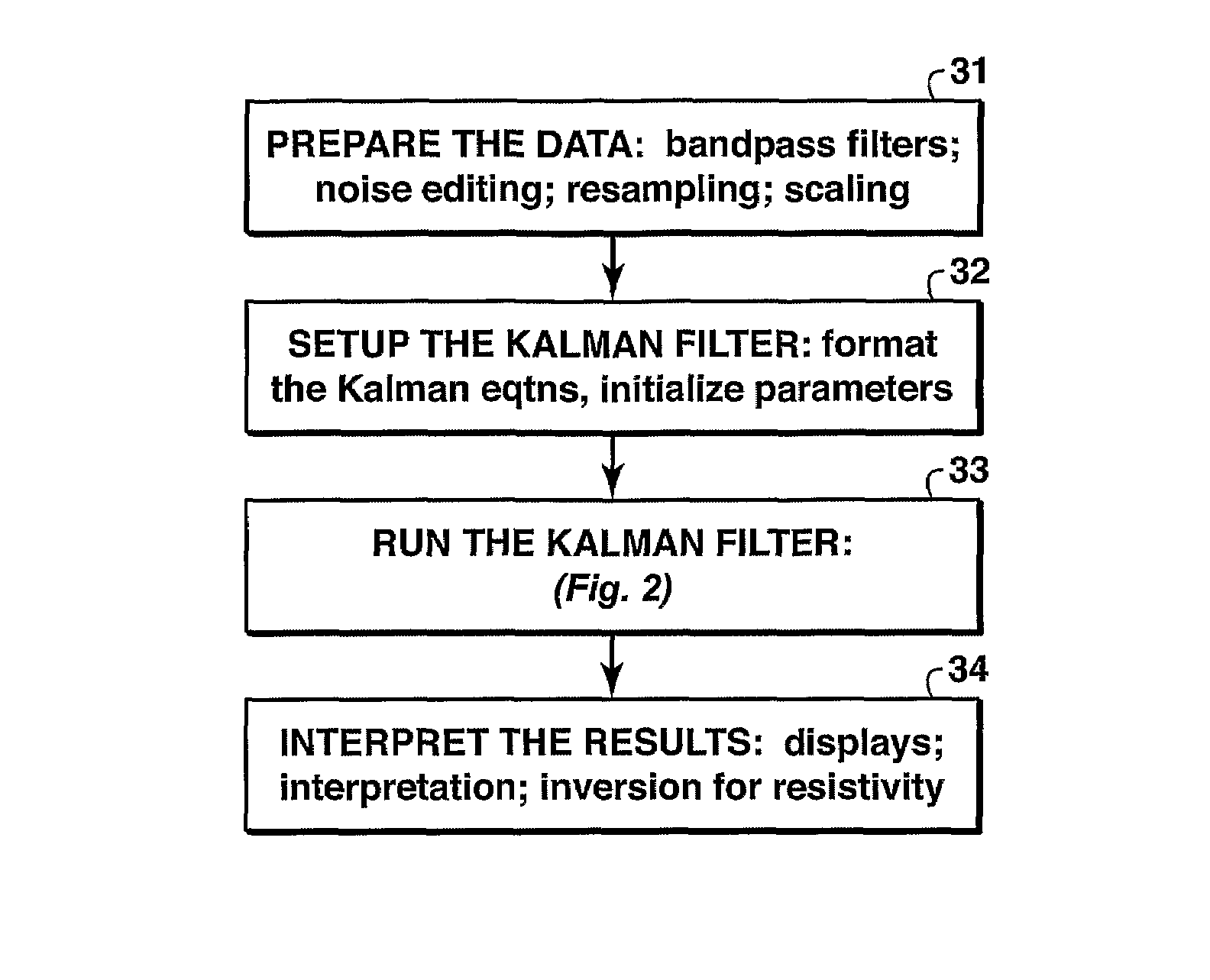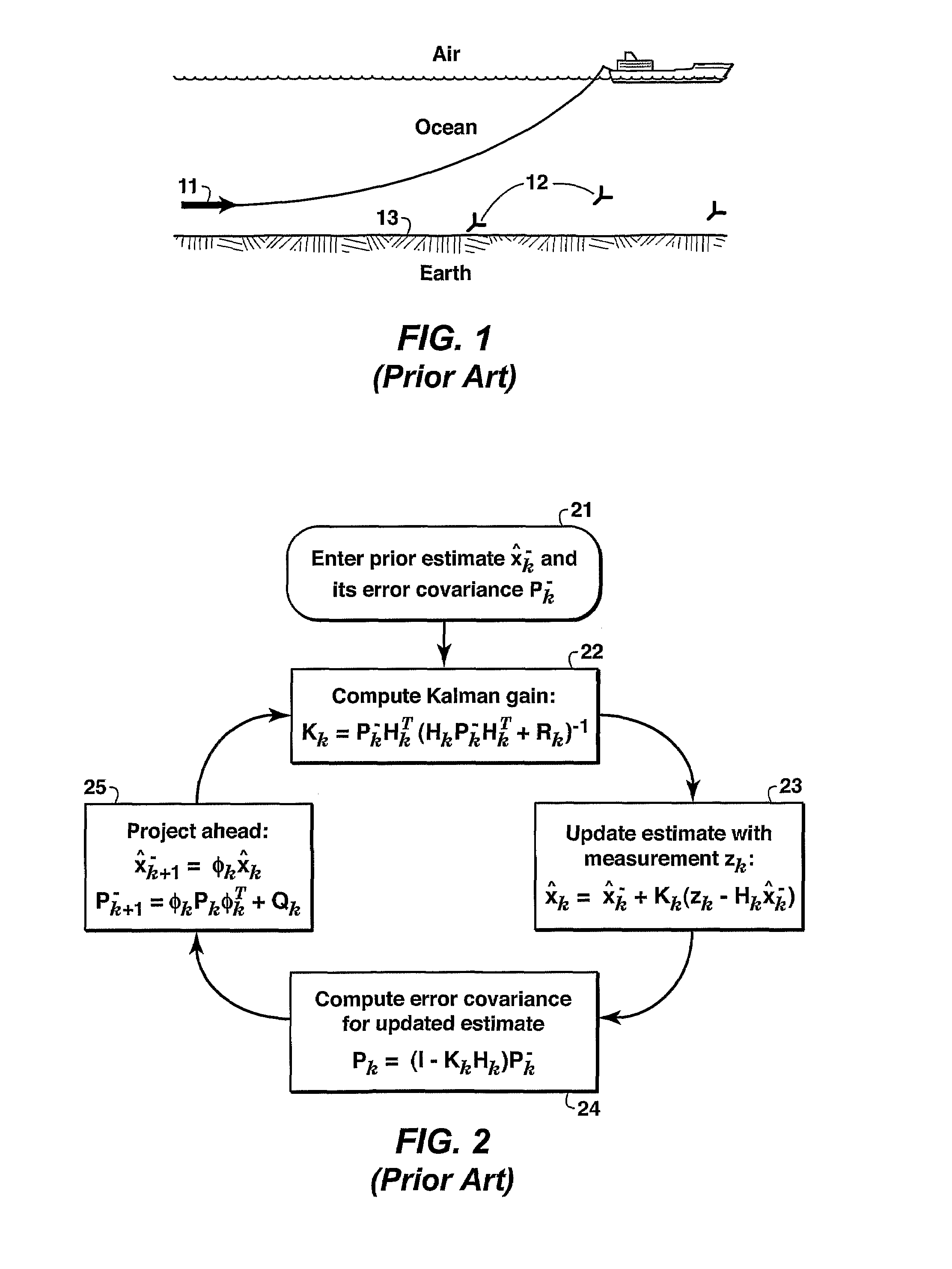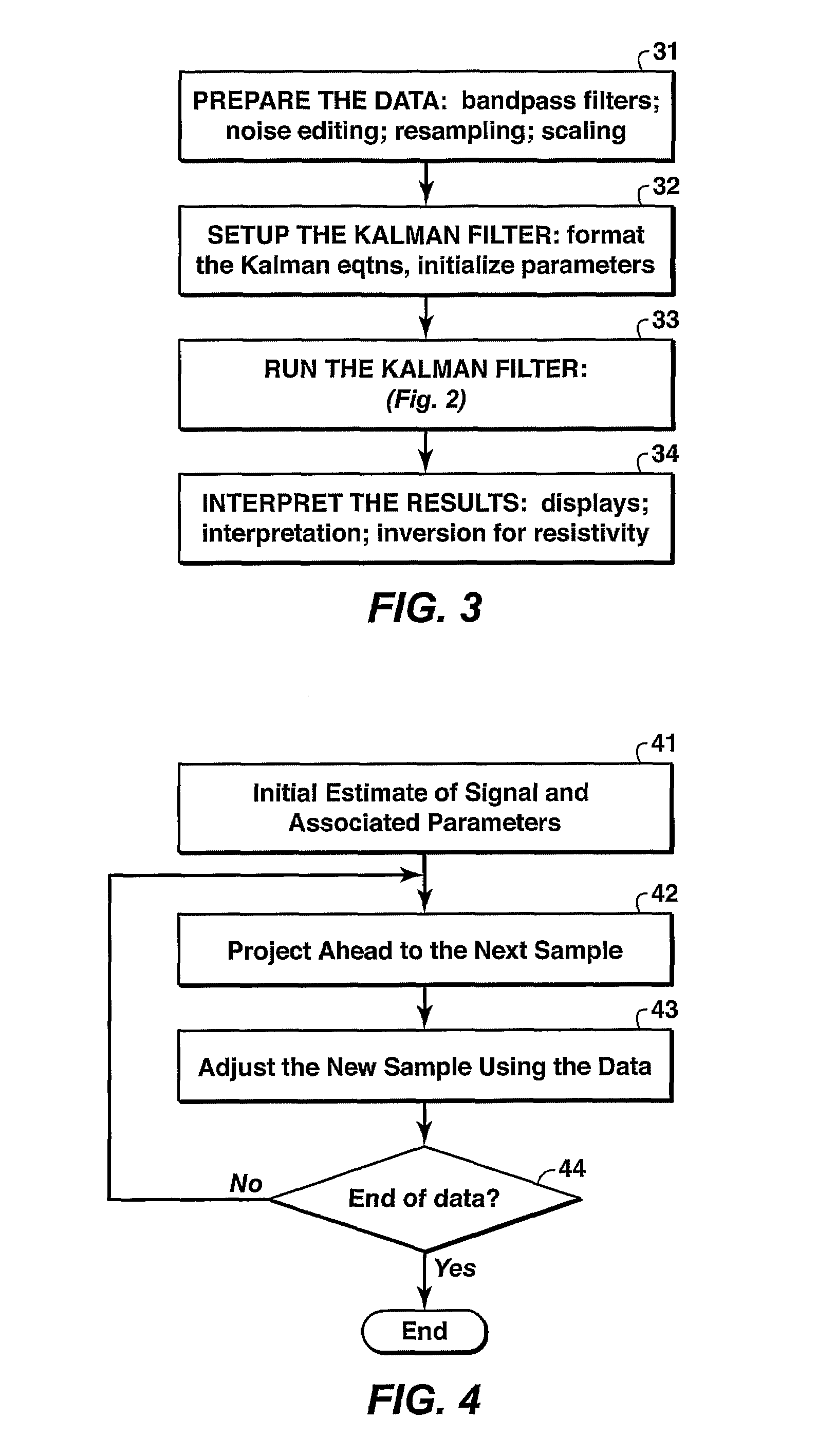Kalman filter approach to processing electromagnetic data
a filter and electromagnetic technology, applied in the field of geophysical prospecting, can solve the problems of minimal signal-to-noise ratio improvement, not taking advantage of signal and noise correlation, and cannot be too large windows, so as to facilitate signal tracking
- Summary
- Abstract
- Description
- Claims
- Application Information
AI Technical Summary
Benefits of technology
Problems solved by technology
Method used
Image
Examples
example
[0052]An example with modeled horizontal electric dipole data is illustrated in FIGS. 5 to 10. FIG. 5 shows the modeled data with additive random noise. The signal frequency is 0.25 Hz and decays roughly exponentially away from the zero-time position. The additive noise is taken from recorded ambient magnetotelluric noise. FIG. 6 illustrates a blow-up of this noisy input data (initial signal plus additive noise) 61 at around 5000 seconds. Plotted on the same figure is the noise-free signal portion 62 of the model data and an estimate 63 of the signal made by using the method of the present invention. The estimate 63 is nearly equal to the noise-free signal 62, and difficult to distinguish from it in FIG. 6. This close similarity is a measure of the present inventive method's success, because the method does not “know” the model signal. It is given only the noisy data as input but is able to recover the signal portion. The embodiment of the present invention that was used in this exa...
PUM
 Login to View More
Login to View More Abstract
Description
Claims
Application Information
 Login to View More
Login to View More - R&D
- Intellectual Property
- Life Sciences
- Materials
- Tech Scout
- Unparalleled Data Quality
- Higher Quality Content
- 60% Fewer Hallucinations
Browse by: Latest US Patents, China's latest patents, Technical Efficacy Thesaurus, Application Domain, Technology Topic, Popular Technical Reports.
© 2025 PatSnap. All rights reserved.Legal|Privacy policy|Modern Slavery Act Transparency Statement|Sitemap|About US| Contact US: help@patsnap.com



